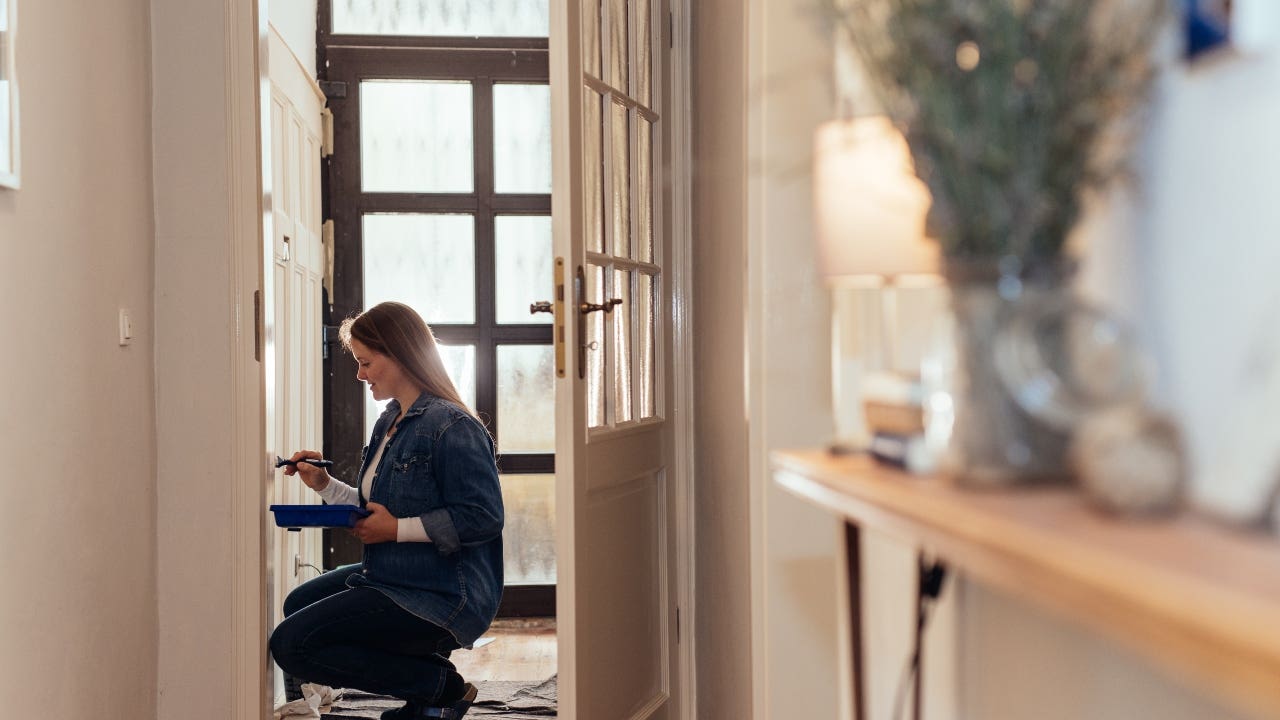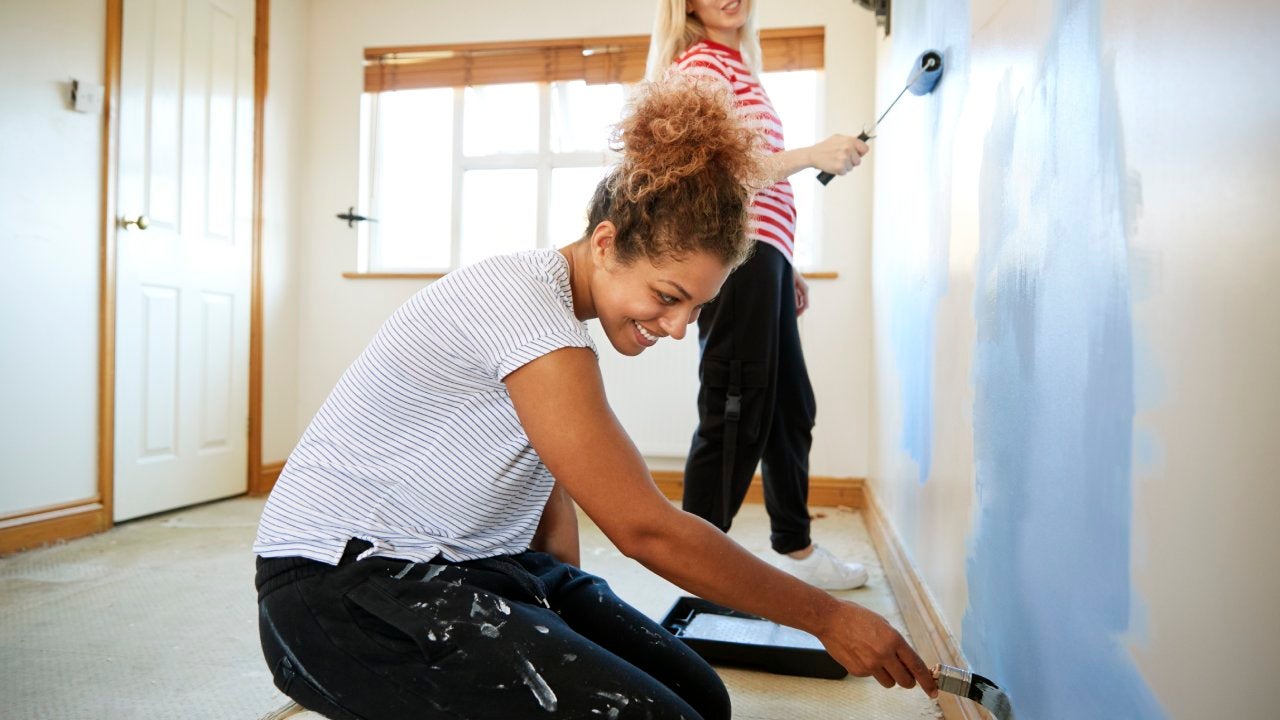5 money-saving home maintenance tips

Keeping everything in and around your home in good working condition can give you peace of mind, protect your asset and save you money. That’s because without routine home maintenance, larger (and potentially avoidable) repairs or replacements can cost you hundreds or thousands more than you’re prepared to pay.
“Most things in your home have a lifespan or a maintenance schedule,” explains Kevin Busch, vice president of operations at Mr. Handyman, a company that provides handyman and remodeling services. Being familiar with these maintenance needs and the cost, Busch says, can help you anticipate and budget accordingly.
How much does home maintenance cost?
When it comes to estimating the cost of home maintenance, a good starting point is to save at least 1 percent of your home’s value each year. That means if you own a $240,000 home, you would set aside a minimum of $2,400 a year, or $200 a month, for maintenance costs.
Of course, if your home is older or in need of extensive work, you’ll need more money stashed away. Even newer homes can cause headaches — that’s life as a homeowner — so consider saving more, if you can, as a cushion for unexpected home repairs.
Another way some homeowners budget for maintenance is to sock away 10 percent of the total cost of their property taxes, mortgage and homeowners insurance payments. If your combined taxes, mortgage payment and insurance costs $4,000 a month, you would put away $400 each month for maintenance.
“Taking into account the geography or region of your home and the factors that may play into the wear and tear of your home and appliances is important, too,” Busch says.
One easy way to set aside money for home maintenance is to set up automatic payments to a savings account.
“If you look at it in small chunks, it doesn’t seem so overwhelming,” notes Russell Catron, HUD housing counseling coordinator at the Tennessee Housing Development Agency. “That little bit of money will add up if you make good decisions.”
5 ways to save money on home maintenance
Home maintenance can be a sizable expense, but you can save yourself money and still keep your home in tip-top shape with preparation and some smart strategies. Here are five simple ways to save money on home maintenance:
1. Do it yourself
To really save on costs, you can do simple fixes yourself — think snaking the drain or redoing a small section of chipped paint — instead of hiring a handyman.
Catron, for his part, watches videos online to learn how to do projects like fixing a garbage disposal.
“If you had a plumber come in to fix it, it would cost $75 just for the visit, and that doesn’t cover any parts or labor that would be added on if the job takes a lot of time,” Catron explains.
When weighing whether to do something yourself or to outsource the task, remember to consider how handy you are and how easily you can pick up a new skill. In some cases, you may actually be better off having a pro come in.
2. Hire a quality professional
If you do have a home maintenance need that requires a contractor, consider spending a little bit more for quality service. Oftentimes, a higher cost means the company carries specific licensing and insurance, which makes them a significantly safer and more reliable choice, potentially saving you from having to pay to fix shoddy work later on.
“The lowest price is often not the best choice,” Busch says, adding that you should always research the company or contractor before agreeing to a job, and check their credentials. You can also find reputable contractors by asking people you trust for a recommendation or referral.
3. Keep up with preventative maintenance
To stave off bigger, more expensive repairs, continue your basic home maintenance projects, which might cost you a little bit now but most likely save you from a large bill later.
Water damage due to plumbing issues, for example, can often be held off with routine tasks, like cleaning the gutters, sealing cracks and attending to leaks or clogs quickly.
Other preventative projects include:
- Replacing smoke alarm batteries
- Keeping your home clean
- Taking care of pests
- Repainting your home’s exterior
4. Cut your energy expenses
At least one home maintenance task, changing your air conditioning filter, can actually save you money in utility costs in addition to preventing the need for a new unit or repair.
To make sure you stay on top of this easy project, set a calendar alert for every one to three months, depending on the manufacturer’s recommendations and any environmental influences.
Other energy-saving measures can help, too. For instance, adding a programmable thermostat can help you save on energy costs and reduce unnecessary wear on your HVAC system, Catron says.
“Also, check with your electric company if they have hours when electricity is cheaper,” Catron recommends. “That’s when you could be doing your laundry or run your dishwasher.”
5. Focus on immediate needs
In a pinch, you can prioritize the parts of your home that need attention now instead of the projects that are “nice-to-dos,” Busch says.
“Consider what will happen if you don’t address an issue,” Busch says. “Will it cause a bigger issue, create additional issues or create a safety hazard?” These are all important questions to ask when determining which maintenance tasks or repairs to prioritize, and considering them can help you save money right now.
Bottom line
Being a homeowner takes a lot of responsibility to care for your home, and discipline to set aside funds for maintenance and repairs. With these tips, you can save money each year and protect the asset you worked hard to purchase for years to come.
“One of the values of homeownership is building equity,” Catron says. “We have to remember to continue building that equity; we have to maintain our homes. The house does not take care of itself.”






